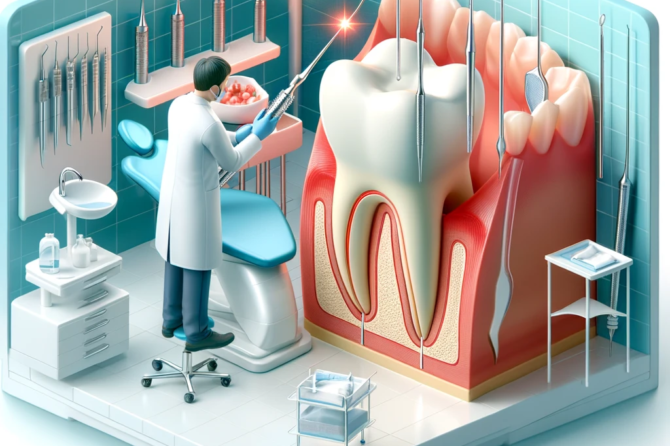
Root Canal Treatment
What is Endodontics?
Endodontics is a specialized field in dentistry that deals with the diagnosis, treatment, and prevention of diseases and injuries of the dental pulp and surrounding tissues. The most common procedure performed in endodontics is the root canal treatment.
The Dental Pulp: What Is It?
Inside each tooth is a soft tissue known as the dental pulp, which contains nerves, blood vessels, and connective tissue. This pulp extends from the crown of the tooth to the tip of the roots, where it connects to the tissues surrounding the root.
Why is Endodontic Treatment Needed?
Endodontic treatment is necessary when the pulp becomes inflamed or infected. This can result from a variety of causes such as deep decay, repeated dental procedures on the tooth, faulty crowns, or a crack or chip in the tooth. Additionally, trauma to a tooth may cause pulp damage even if the tooth has no visible chips or cracks.
Symptoms Indicating Endodontic Treatment
- Persistent toothache
- Sensitivity to hot and cold temperatures
- Tenderness to touch and chewing
- Discoloration of the tooth
- Swelling and tenderness in the nearby gums
The Root Canal Procedure
A root canal procedure involves the following steps:
- Diagnosis:X-rays are taken to assess the extent of the infection.
- Anesthesia:The area is numbed for your comfort.
- Pulpectomy:An opening is made in the crown of the tooth. The infected or inflamed pulp is removed.
- Filling:The root canal space is cleaned, shaped, and filled with a biocompatible material.
- Sealing:The opening in the tooth is sealed with a temporary or permanent filling.
Post-Treatment Care
After the procedure, you may need to visit your dentist to have a crown or other restoration placed on the tooth to protect it and restore it to full function.
Benefits of Endodontic Treatment
- Saves the natural tooth
- Alleviates pain
- Limits the spread of infection
- Restores normal biting force and sensation
- Enhances your overall oral health
Conclusion
Endodontic treatment is a highly effective way to save a tooth that might otherwise need to be removed. Remember, maintaining your natural teeth is always the best option for your oral health.
If you're experiencing any symptoms that suggest pulp damage, it's important to consult your dentist promptly for an evaluation.
Leave a reply